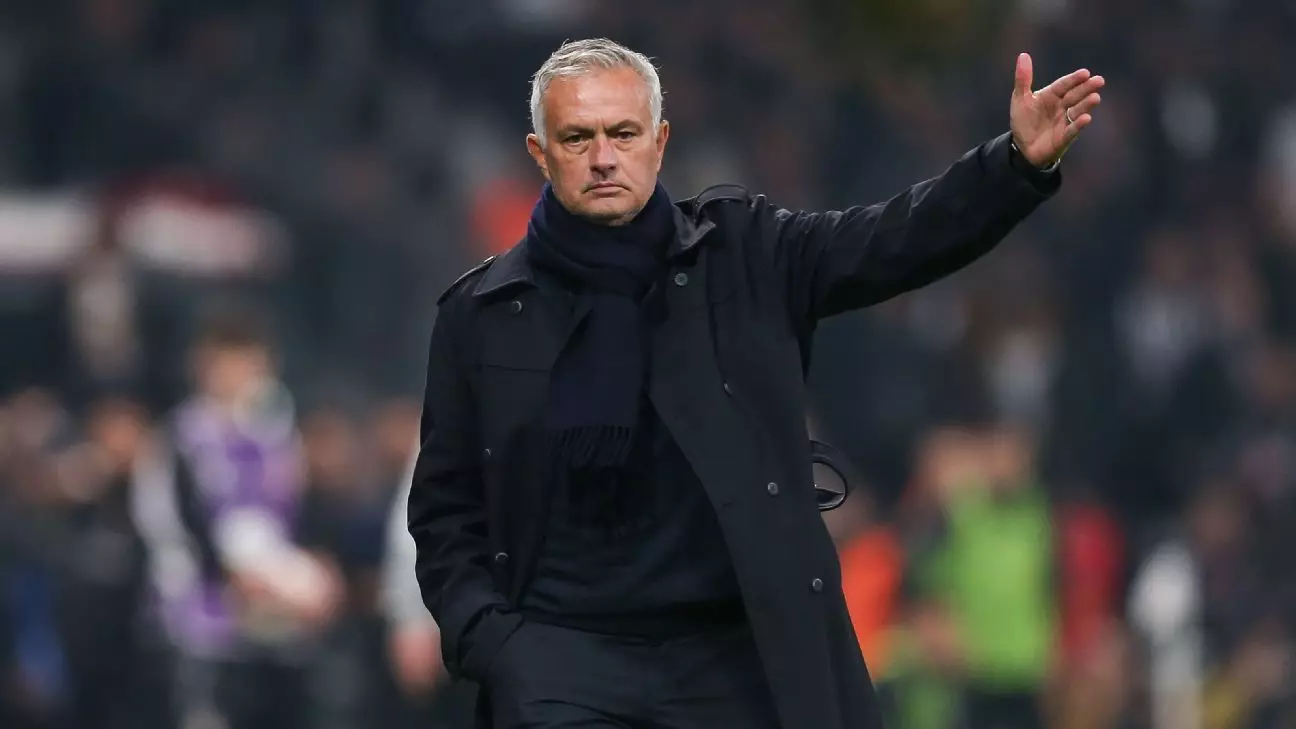The Complex Relationship Between Mourinho and Guardiola A Quest for Football Justice
When it comes to football, rivalries are often the spice that keeps fans on the edge of their seats. One of the most intriguing rivalries in recent history is undoubtedly between José Mourinho and Pep Guardiola. Their story is one of fierce competition, strategic battles, and a quest for what each believes to be justice in the sport they love. As someone who appreciates the drama and passion of football, I’m excited to delve into how these two legendary managers have shaped not just each other’s careers, but also the broader conversation about fairness in football.
Their rivalry first caught fire during Mourinho’s time at Real Madrid and Guardiola’s era with Barcelona. It was a period filled with intense matches and memorable moments that have become part of football folklore. Fast forward to today, and their rivalry has taken on new dimensions with their comments on financial fairness in football. As someone who has followed this saga closely, I find it fascinating how their personal history now intersects with larger issues facing the beautiful game.
What I find most compelling about their dynamic is how it transcends mere personal animosity. While it’s easy to summarize their relationship as a clash of egos, there’s so much more at play here. Both managers have had experiences that highlight inequities within football’s financial system. Their public discourse isn’t just about one-upmanship; it’s a call to address deeper issues that affect clubs worldwide. Let’s explore this intricate relationship and understand what it means for the future of football.
Key Takeaways
- Mourinho and Guardiola’s rivalry began during their tenures at Real Madrid and Barcelona.
- Both managers have expressed concerns about financial fairness in football.
- Their relationship illustrates broader issues of justice and integrity in the sport.
The Origins of a Heated Rivalry
The roots of Mourinho and Guardiola’s rivalry can be traced back to their days in La Liga. During this time, they were at the helm of two of the world’s most successful clubs—Real Madrid and Barcelona. Matches between these teams were more than just games; they were epic battles that often decided league titles and European glory. Mourinho’s tactical prowess was pitted against Guardiola’s innovative strategies, creating a spectacle that captivated fans everywhere.
For those who watched these encounters unfold, it was clear that this wasn’t just another managerial rivalry. It was a deeply personal contest marked by contrasting philosophies and approaches to the game. Mourinho was known for his defensive solidity and mind games, while Guardiola emphasized possession-based attacking football. This clash of styles added an extra layer of intrigue to an already intense competition.

As their battles raged on, both managers left indelible marks on each other’s careers. The pressure to outperform each other pushed them to evolve tactically, making them better coaches in the process. Despite the heated exchanges and occasional barbs thrown at one another, both men have acknowledged the role this rivalry played in shaping their managerial journeys.
The Quest for Football Justice
Recently, this storied rivalry has been reignited by debates over financial fairness within football. Mourinho has been vocal about what he perceives as double standards in financial regulations. Having managed clubs with varying budgets, he’s seen firsthand how smaller clubs can face harsh penalties for minor infractions while wealthier clubs seemingly escape unscathed from more serious breaches.
Mourinho’s advocacy for “justice in football” isn’t merely about leveling criticisms at Manchester City or Guardiola; it’s a broader call for equity in how financial rules are applied. He argues that without fair enforcement, the competitive balance within leagues will continue to skew in favor of clubs with deeper pockets. It’s a sentiment that resonates with many fans who worry about the growing disparity between elite clubs and everyone else.
Guardiola’s Perspective
On the other side of this debate is Pep Guardiola, whose focus remains firmly on his current role at Manchester City. With his contract extended until 2027, Guardiola has shown commitment to building something lasting at City—a contrast to Mourinho’s frequent club changes. For him, success is built on stability and long-term planning rather than engaging in off-field controversies.

While Mourinho raises concerns about financial fairness, Guardiola emphasizes performance on the pitch as his primary concern. He seems less inclined to engage in public disputes over financial regulations unless they directly impact his team’s ability to compete. For Guardiola, maintaining focus amid external noise is crucial as he aims to close out his tenure at City on a high note.
A Broader Dialogue on Fairness
The ongoing dialogue between Mourinho and Guardiola encapsulates larger issues facing professional football today. Financial disparities among clubs have become increasingly pronounced, prompting calls for reforms that could level the playing field. Whether it’s through stricter enforcement of existing rules or introducing new measures altogether, there’s a growing consensus that something must change.
Mourinho’s push for fairness could be seen as timely given recent scrutiny over club finances across Europe. Meanwhile, Guardiola’s focus remains on achieving excellence within whatever framework exists—a testament to his adaptability as a manager even amidst shifting landscapes around him.
Final Thoughts
The relationship between José Mourinho and Pep Guardiola is more than just headline fodder or fodder for gossip columns—it’s emblematic of deeper discussions happening within professional sports today regarding fairness justice integrity competition equity among others Their contrasting views offer valuable insights into how different stakeholders perceive challenges opportunities facing modern-day sport And while they may never fully agree on all matters related football finance their dialogue serves vital reminder importance having open honest conversations ensure future remains bright everyone involved
Mourinho Guardiola football justice financial fairness rivalry


Leave a Reply